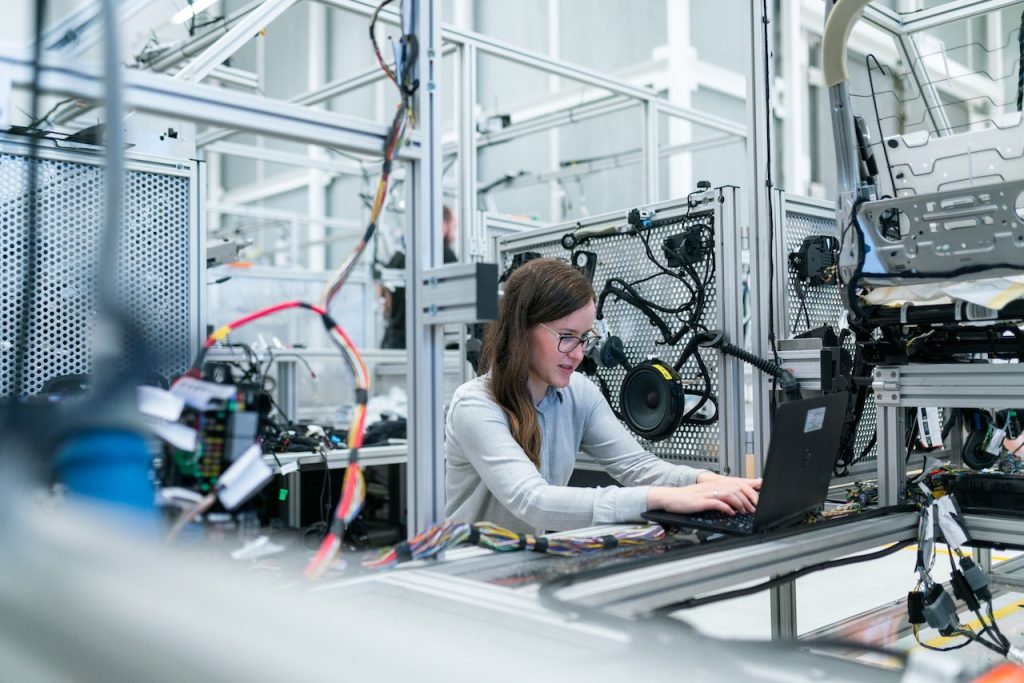
Top 3 Upcoming Technologies That Can Change The World
In the ever-evolving landscape of technology, breakthroughs and innovations continually shape the way we live and interact with the world. While some technologies are already changing our lives, others are on the horizon, poised to revolutionize various industries and aspects of our daily existence. In this blog, we’ll explore the top three upcoming technologies that have the potential to change the world as we know it.
1. Quantum Computing: A Computing Revolution

Quantum computing has long been the stuff of science fiction, but it is rapidly becoming a reality. Unlike classical computers that use bits (either 0 or 1) to process information, quantum computers leverage the unique properties of quantum bits or qubits. These qubits can exist in multiple states simultaneously, enabling quantum computers to perform complex calculations at speeds unimaginable with classical computers.
The potential applications of quantum computing are vast and transformative. They could revolutionize fields such as cryptography, drug discovery, materials science, and even artificial intelligence. Quantum computers have the potential to break current encryption methods, leading to more secure communication systems. They could also simulate molecular interactions to accelerate drug development and discover new materials with extraordinary properties.
However, quantum computing is still in its infancy, and many technical challenges need to be overcome. Building and maintaining stable qubits and creating error-correcting codes are among the significant hurdles. Nonetheless, the promise of quantum computing is undeniable, and it’s poised to change the world of computing and problem-solving as we know it.
2. Artificial Intelligence and Machine Learning: The Future of Automation
Artificial intelligence (AI) and machine learning (ML) are already making significant impacts across various industries, but their potential is far from realized. These technologies empower machines to learn from data and make decisions independently, mimicking human cognitive functions. As AI and ML algorithms become more sophisticated and accessible, their transformative power will only grow.
In healthcare, AI can analyze medical images, predict disease outbreaks, and personalize treatment plans. In transportation, autonomous vehicles guided by AI will revolutionize the way we move, reducing accidents and congestion. In finance, AI-driven algorithms can optimize investment strategies and detect fraudulent activities with unparalleled accuracy. Moreover, AI-powered virtual assistants and chatbots are reshaping customer service and support industries.
The key to unlocking the full potential of AI and ML lies in data, algorithms, and computational power. As these technologies continue to advance, we can expect AI and ML to drive innovation, enhance productivity, and address some of society’s most pressing challenges. However, ethical considerations, transparency, and responsible AI development will be crucial to ensure that these technologies benefit humanity as a whole.

3. Biotechnology and Gene Editing: Transforming Healthcare
Advancements in biotechnology and gene editing are poised to revolutionize healthcare and the treatment of genetic diseases. CRISPR-Cas9, a revolutionary gene-editing tool, allows scientists to precisely modify DNA, opening the door to potential cures for genetic disorders.
Gene therapy and genome editing can potentially eradicate inherited diseases, such as cystic fibrosis and sickle cell anemia, by repairing or replacing faulty genes. Additionally, these technologies hold promise in cancer treatment, making it possible to target and eliminate cancerous cells with greater precision while minimizing collateral damage to healthy tissues.
Biotechnology also extends to the field of synthetic biology, where scientists are engineering microorganisms to produce biofuels, biodegradable plastics, and even pharmaceuticals in a more sustainable and cost-effective manner. The potential benefits of biotechnology are immense, from improving human health to addressing environmental challenges.
However, ethical concerns surrounding gene editing, including issues related to germline editing and unintended consequences, must be carefully considered. The responsible and ethical development of these technologies is crucial to harness their transformative potential while minimizing risks.
Conclusion: Anticipating a Transformed World
The world is on the cusp of major technological transformations, driven by quantum computing, artificial intelligence and machine learning, and biotechnology and gene editing. While these technologies hold immense promise, they also present ethical, regulatory, and technical challenges that must be navigated responsibly.

As these upcoming technologies continue to advance and become integrated into our daily lives, they have the potential to reshape industries, drive innovation, and address some of the most pressing global challenges. Embracing these changes while carefully considering their societal impacts will be essential in harnessing their full potential and shaping a future that benefits all of humanity. The world is poised for transformation, and these technologies are at the forefront of that exciting journey.